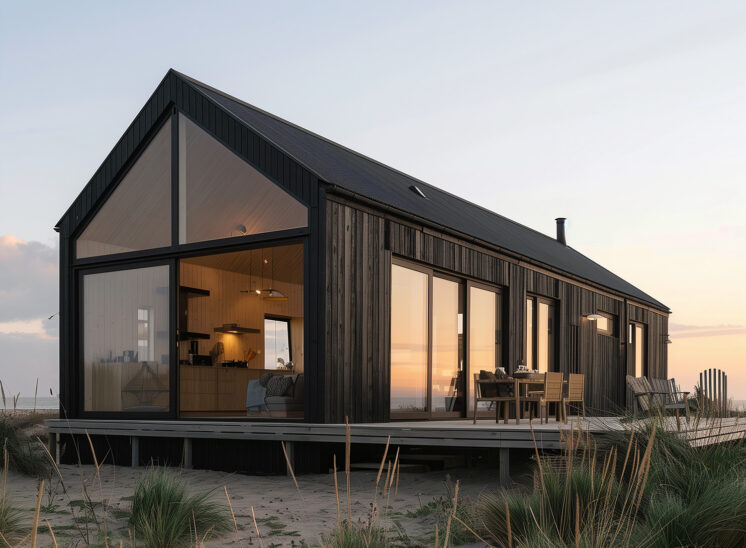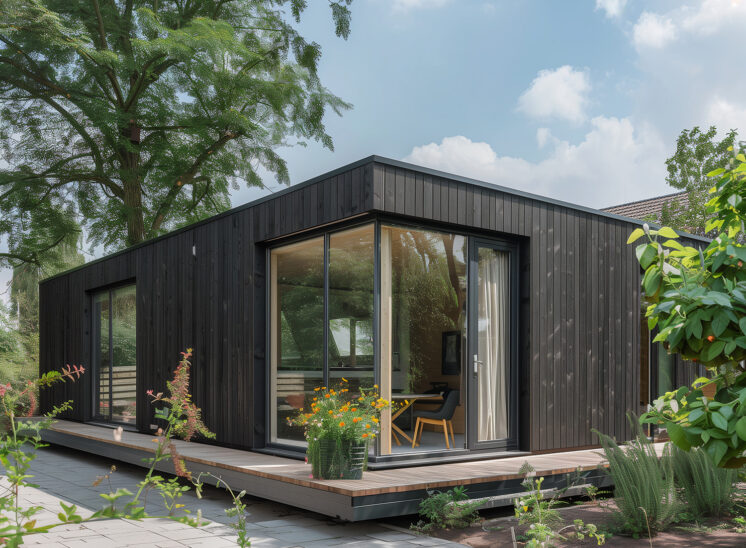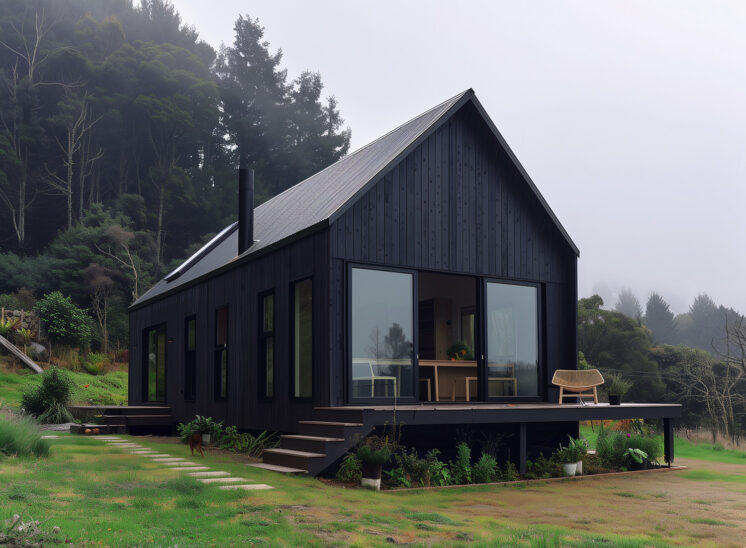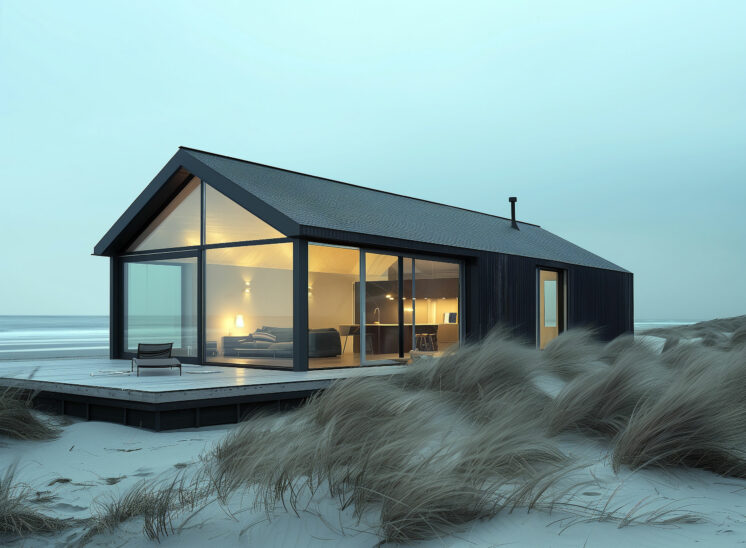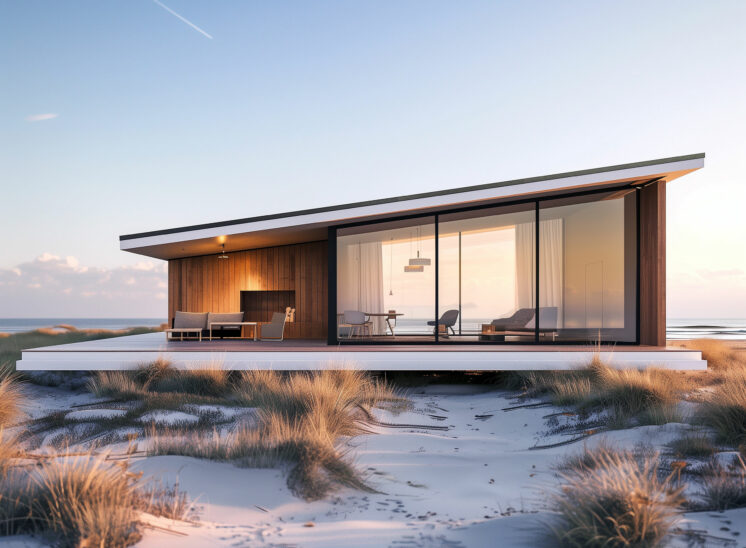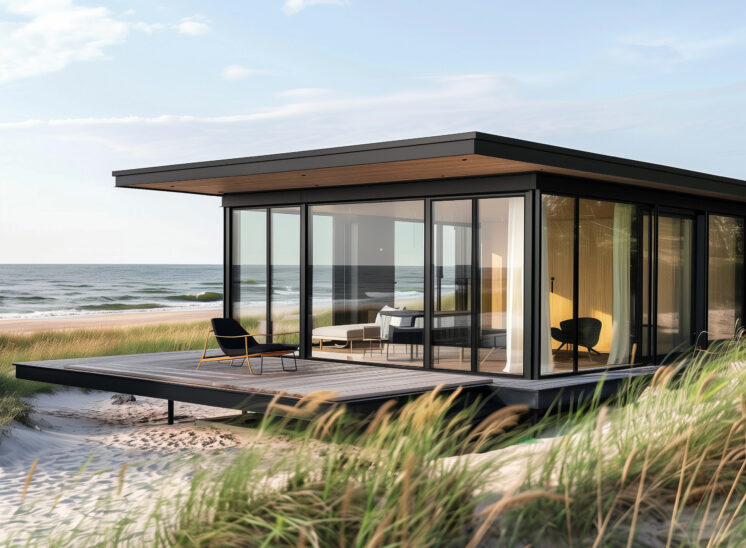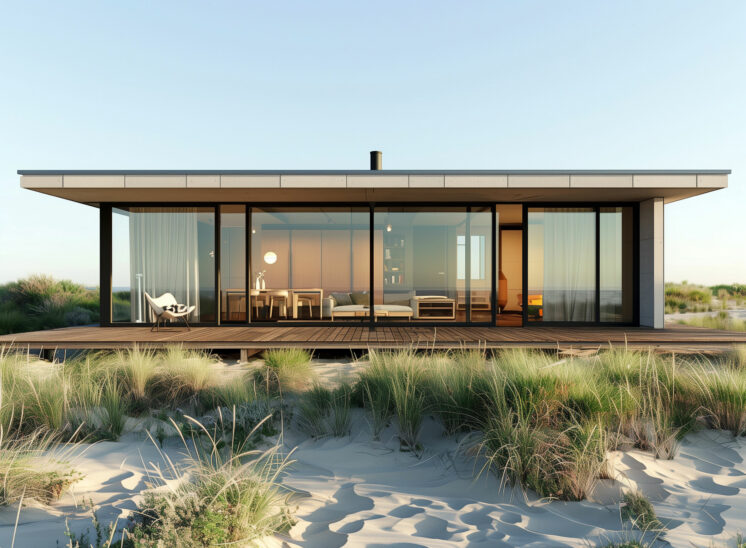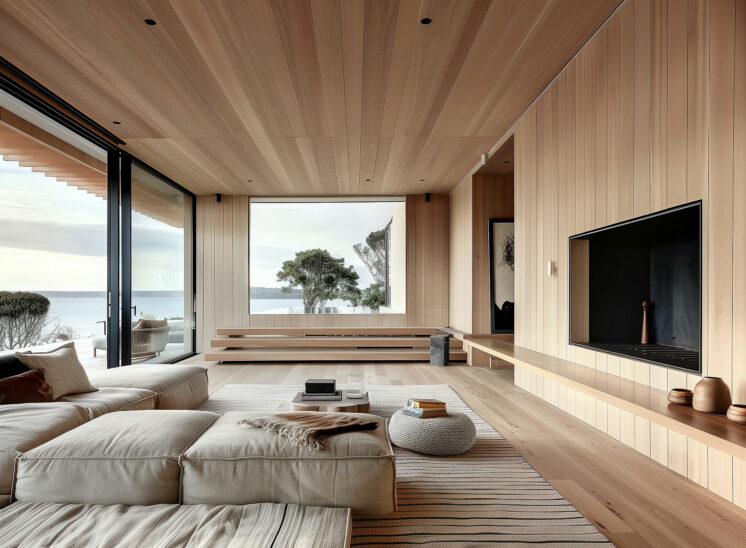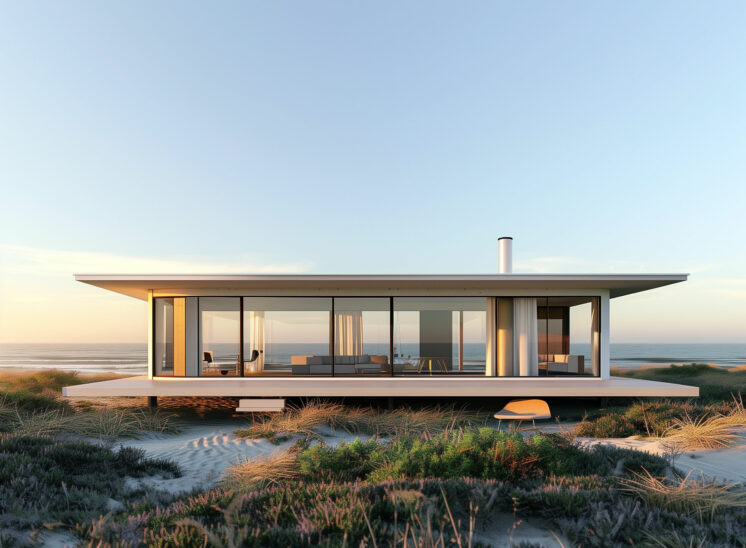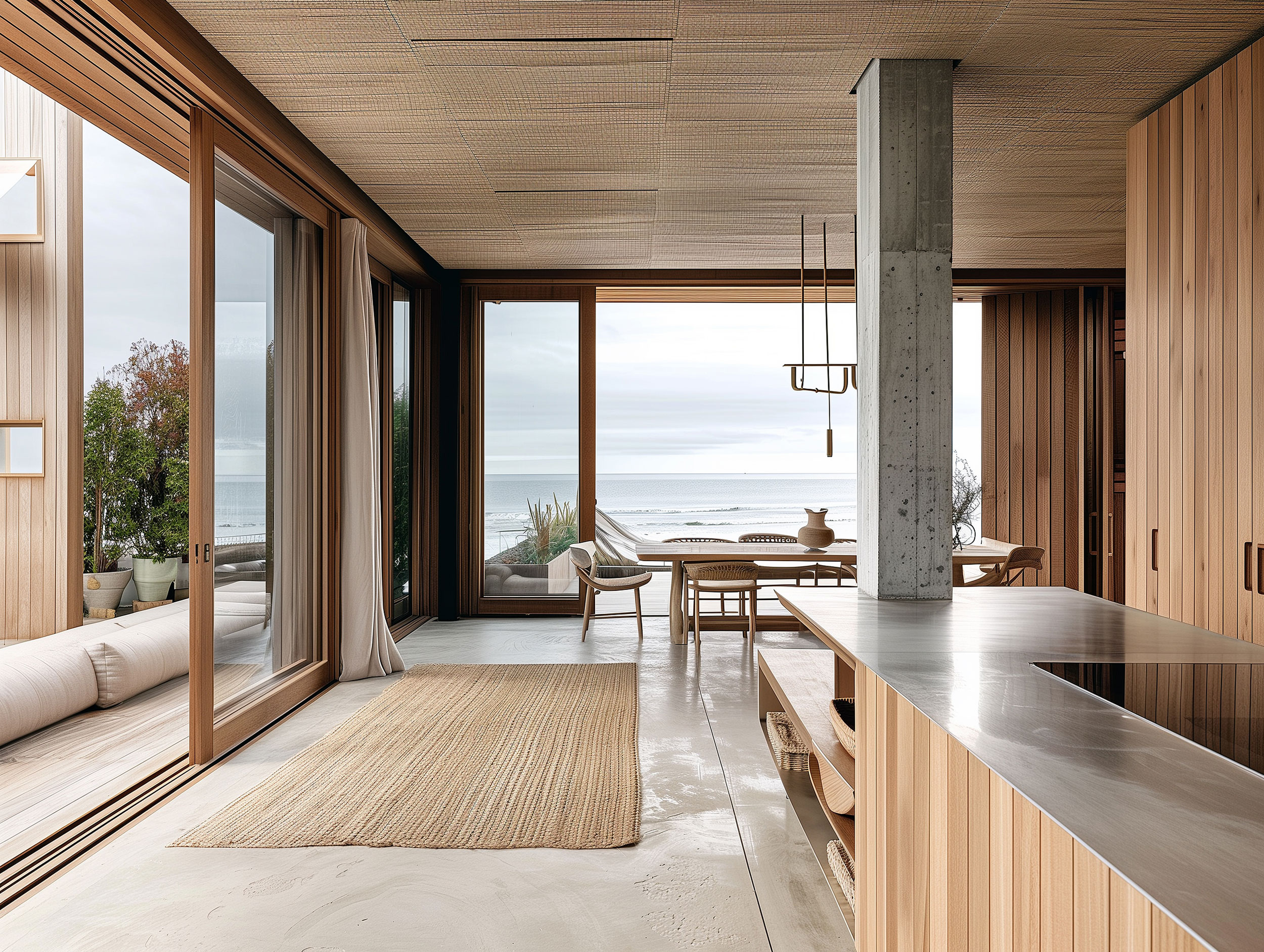
A Comprehensive Guide to Using Mobile Homes as Residential Annexes Without Planning Permission
Introduction
As housing needs evolve, more homeowners are exploring alternative ways to expand their living spaces. One increasingly popular solution is to install a mobile home or static caravan as a residential annex in the garden. This guide provides an up-to-date overview of how to use a mobile home as an annex without the need for planning permission, detailing the conditions, legal framework, and benefits associated with this approach.
Key Conditions and Legal Framework
1.Location Requirements:
•Permissible Areas: The mobile home must be located within the residential boundary (curtilage) of the main dwelling. This generally excludes areas like conservation zones, national parks, or land where development is otherwise restricted.
•Incidental Use: The mobile home must be used for purposes that are incidental to the use of the main house, such as providing accommodation for a family member. It cannot be rented out as an independent residence.
2.Permitted Development Rights:
•Understanding Exemptions: Under permitted development rights, certain types of structures, including mobile homes, can be placed in a garden without planning permission, provided they comply with the law. These rights allow for greater flexibility in utilizing the space without bureaucratic hurdles.
•Legal Definition of Mobile Homes: According to the Caravan Sites and Control of Development Act 1960, a mobile home is defined as a movable structure within specific size limits, designed for human habitation.
3.Assembly and Access:
•On-site Assembly: If your garden has restricted access, mobile homes can be delivered in sections and assembled on-site. This ensures that even properties with narrow entrances can accommodate a mobile home.
Benefits of Using a Mobile Home as an Annex
1.Cost-Effective Expansion:
•Mobile homes offer a more affordable way to add living space compared to traditional extensions. This option is particularly appealing to those looking to accommodate elderly relatives or young adults while retaining privacy and independence.
2.Bypassing Planning Permission:
•By meeting the requirements of incidental use and ensuring the mobile home is within the residential curtilage, homeowners can avoid the complexities and delays associated with obtaining planning permission.
3.Increased Property Value:
•Adding a mobile home as an annex can enhance the property’s overall value by providing additional living space that appeals to a wide range of potential buyers.
Obtaining a Certificate of Lawfulness
While planning permission might not be necessary, it is advisable to obtain a Certificate of Lawfulness from your local council. This certificate serves as legal confirmation that the mobile home is being used lawfully under permitted development rights. It provides peace of mind and can prevent future disputes with local planning authorities.
Design and Modernity
Modern mobile homes are a far cry from the outdated stereotypes. They now offer luxurious living spaces that are both comfortable and aesthetically pleasing. These homes can be fully customized, featuring modern kitchens, bathrooms, and multiple bedrooms, making them ideal for extended family living.
Environmental and Aesthetic Considerations
•Screening and Landscaping: Proper screening and landscaping are crucial in integrating a mobile home into your garden. This not only improves the visual appeal but also helps maintain the property’s overall aesthetic.
•Environmental Impact: In environmentally sensitive areas, such as coastal zones, additional considerations may be necessary to minimize ecological disruption.
Conclusion
Using a mobile home as a residential annex is a practical and often underutilized way to expand living space without the need for planning permission. By understanding and adhering to the relevant legal requirements, homeowners can take advantage of this option to enhance their property’s value and functionality.
For those considering this option, consulting with local authorities or a planning expert is recommended to ensure compliance with all applicable regulations. Additionally, obtaining a Certificate of Lawfulness can provide legal assurance that your mobile home annex is fully compliant with local planning laws.
The latest Guide to Using Mobile Homes as Residential Annexes Without Planning Permission
Introduction
As property owners seek to expand their living spaces, one increasingly popular option is to install a mobile home or static caravan as a residential annex in the garden. This approach offers a flexible, cost-effective alternative to traditional extensions, and in many cases, it can be done without the need for planning permission. This guide provides an updated overview of the legalities, conditions, and benefits associated with using a mobile home as a residential annex.
Key Conditions and Legal Framework
1.Location Requirements:
•Permissible Areas: The mobile home must be situated within the residential boundary (curtilage) of the existing dwelling. This excludes conservation areas, national parks, and other protected zones unless specific permissions are granted.
•Incidental Use: The mobile home must be used for purposes incidental to the main house, such as housing a family member, and cannot be rented out as a separate residence.
2.Permitted Development Rights:
•General Exemptions: Under permitted development rights, certain small structures, including some types of mobile homes, can be placed in a garden without the need for planning permission, provided they are used in connection with the main house.
•Mobile Home Definition: According to the Caravan Sites and Control of Development Act 1960, a mobile home is defined as a structure that is movable, within certain size limits, and intended for human habitation.
3.Assembly and Access:
•On-site Assembly: If access to the garden is restricted, mobile homes can be delivered in parts and assembled on site, making them a viable option even in urban settings with limited space.
Benefits of Using a Mobile Home as an Annex
1.Cost-Effective Expansion:
•Mobile homes provide an affordable way to increase living space compared to traditional building extensions, which often require extensive planning and higher costs.
2.Avoiding Planning Permission:
•By adhering to the rules of incidental use and ensuring the mobile home is within the residential curtilage, homeowners can avoid the lengthy process of applying for planning permission.
3.Increased Property Value:
•Adding a mobile home as a residential annex can increase the overall value of the property, offering additional living space that appeals to future buyers.
Obtaining a Certificate of Lawfulness
While planning permission may not be necessary, it is advisable to obtain a Certificate of Lawfulness from your local council. This certificate provides legal confirmation that the mobile home is being used lawfully under permitted development rights. It can be particularly useful if there are concerns about future enforcement or if the property is sold.
Design and Modernity
Modern mobile homes have evolved significantly and now offer high-quality living spaces that rival traditional homes. These structures are customizable and can include features such as full kitchens, bathrooms, and multiple bedrooms, making them suitable for extended family living.
Using a mobile home as a residential annex is a practical and often underutilized method of expanding living space without the complexities associated with traditional home extensions. By understanding the legal requirements and benefits, homeowners can make informed decisions that enhance their property’s value and functionality.
For those considering this option, it’s recommended to consult with local authorities or a planning expert to ensure compliance with all relevant regulations and to explore the possibility of obtaining a Certificate of Lawfulness for added security.

